
Alphabetical Menu
Chronological Menu
|
The Conjuring: The Devil Made Me Do It 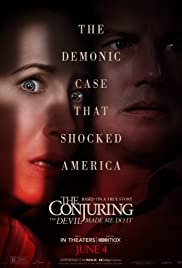 After Ed (Patrick Wilson) and Lorraine Warren (Vera Farmiga) perform an exorcism on a young boy, David (Julian Hilliard), Arne Johnson (Ruairi O’Conner), the boyfriend of David's sister ends up possessed with the demon himself and commits a murder. It's now up to Ed and Lorraine to help him and his attorney find the evidence to prove that's not guilty by reason of demonic possession. Despite the fact that the plot synopsis above sounds like the new Conjuring will be a crime thriller taking place in courtroom, there are few courtroom scenes. The screenplay by David Leslie Johnson-McGoldrick doesn't really focus on the crime thriller aspects nor does it add any suspense for that matter. The attempts to generate scares fall flat this time with a few creepy scenes and jump scares, but none of them are palpably terrifying. Too much of the film feels bland, lethargic and dull with only one brief moment of levity. A scene on a cliff with Ed and Lorraine is the only one that's somewhat intense and gripping, but those feelings are ephemeral. What follows is a chore to sit through until an ending that's rushed and underwhelming. Worst of all, the cinematography looks subpar with poorly lit scenes that make it hard to see what's going on at times. Some of the editing is choppy and the music score tries too hard to tell the audience how to feel, so it's intrusive more often than not. The only glue that holds the film together somewhat is Vera Farmiga and Patrick Wilson's moving, natural performance, but they're both undermined by the weak screenplay. The scariest, most intriguing scene is actual footage from the true story. Perhaps this would've worked better as a documentary. As a film, very little rings true or comes even close to being as scary or captivating as the first Conjuring. At a running time of 1 hour and 52 minutes, The Conjuring: The Devil Made Me Do It is a poorly-shot, anemic, overlong bore. 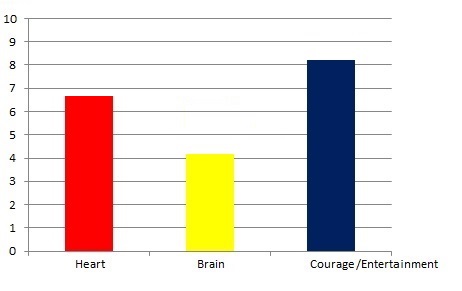 Spirit Untamed 
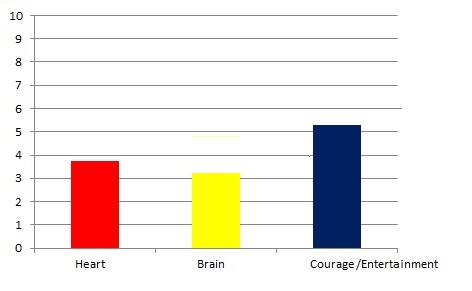 Undine 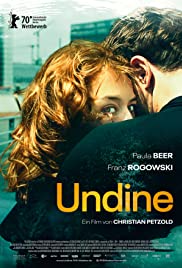 When Johannes (Jacob Matschenz) announces to his girlfriend, Undine (Paula Beer), that he's going to leave her, she tells him that if he does, she'll kill him. Right after he breaks up with her, she meets another man, Christoph (Franz Rogowski), a professional diver, and falls in love with him. Based on the novella "Undine" by Friedrich de la Motte Fouque, the screenplay by writer/director Christian Petzold starts right at the end of the relationship between Undine and Johannes without flashing back to their romantic past. Petzold doesn't just omit those scenes which would've padded the first act, but also omits the exposition of the myth of Undine. By starting with the second act, he trusts the audience's intelligence as well as their imagination. Even if you're not familiar with the myth of Undine, Undine still works as intriguing blend of realism and fantasy while blurring the line between both every now and then. Its blend of psychological drama, romance, character study, suspense and fantasty could've been a convoluted, uneven mess if it didn't have such a well-written screenplay that infuses those elements effectively. Fundamentally, though, it's a love story albeit not a conventional one. What transpires after Christoph and Undine meet and fall in love won't be spoiled here, but it's worth mentioning that Petzold keeps the audience captivated by every turn of event. Undine remains, from start to finish, a fascinating character because of her mystique. She's alluring and confident, yet fragile and sensitive. She yearns to be loved and exhibits signs of emotional neediness and vulnerability which makes her all the more human and compelling because she's flawed. Petzold wisely avoids voice-over narration, flashbacks and schmaltz. Paula Beer gives a terrific perfmances as the titular character while capturing the nuances of her role very naturally. Most importantly, she finds the emotional truth of Undine and provides her with an inner life along with a heart, mind and soul, even during the moments when Undine isn't particularly likable. Her chemistry with Rogowski feels real and palpable, so when they profess their love for one another, it feels raw, tender and heartfelt. Fortunately, the pace doesn't move too quickly, so their relationship doesn't feel rushed. That's ultimately a testament to Petzold's skills as a director who trusts the audience's intelligence and treats them like adults. On an aesthetic level, he should also be commended for using color and lighting to add more depth and well as poetry to the film while infusing it with symbolism. The aquarium that shatters onto Christoph and Undine can be seen as a metaphor and, concurrently, as a catalyst. Poetry, after all, is a form a protest, so then what might the film be a protest for or against? That's left up to the audience's imagination and intelligence, but at least it provides some food for thought about humanity once the credits start rolling. At a running time of 91 minutes, Undine is one of the most mesmerizing, poetic and heartfelt love stories since The Shape of Water. 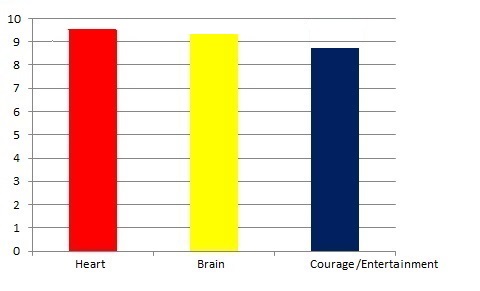 |